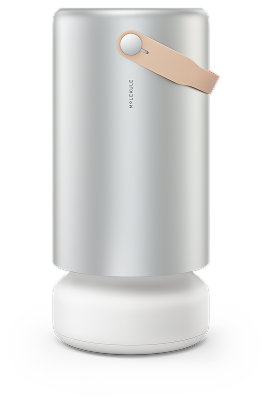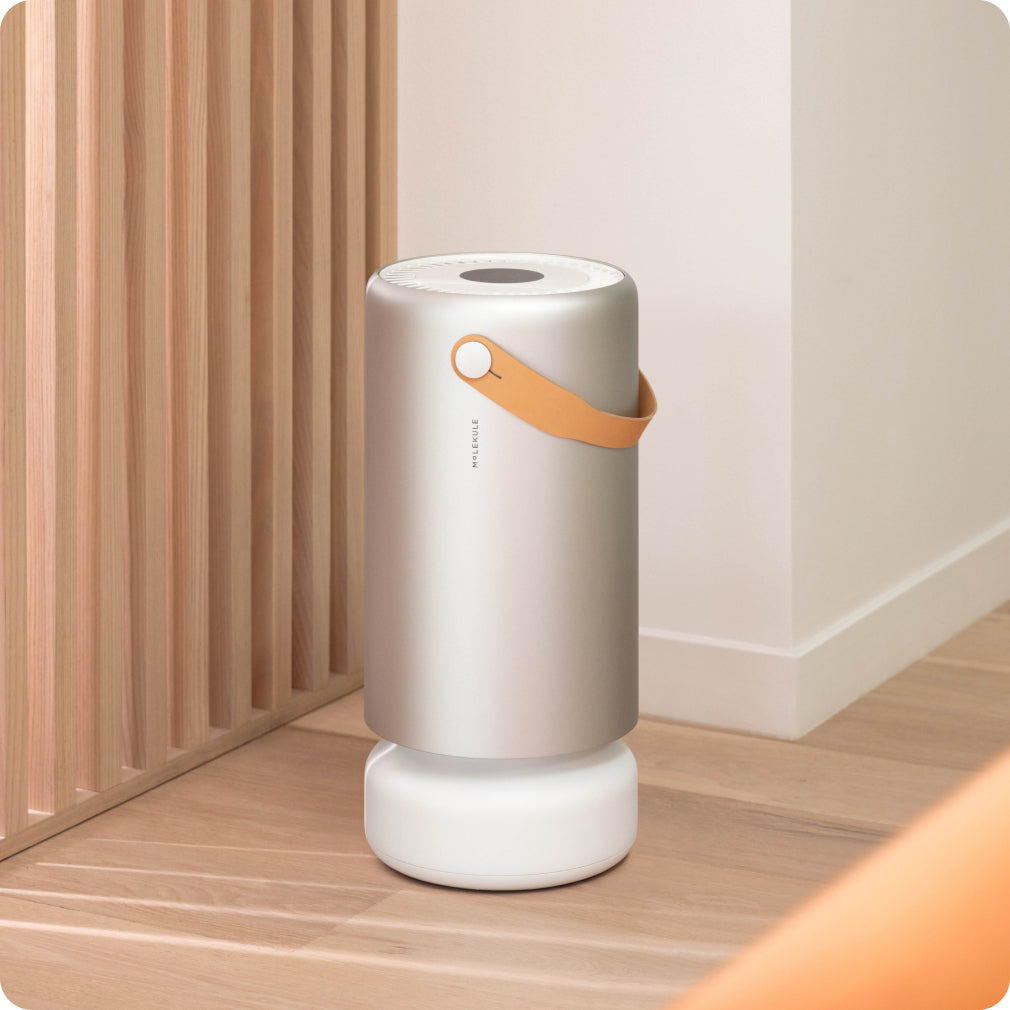A lot of us wake up before our alarm clocks without realizing it means we can keep track of time while completely asleep. Most if not all of us are capable of purposefully waking up by anticipating when it’s time to start the day, and it’s something that can be learned.
I learned how to do it while I was pursuing a Master’s Degree in Consciousness a few years ago, primarily because waking up to an alarm had been ruining my day, but also as part of my studies. I hated getting up so I used the snooze button. I tried all different kinds of mellow music and sounds. I tried a sunrise alarm clock that just shines a gradually brightening light in your face instead of sound, but nothing changed the feeling of being forced awake. I read later in a small but telling study on Japanese university students that snoozing makes sleep inertia- the grogginess or sluggishness after waking- last longer than if we just get out of bed.
Now, as long as I’m not sick or losing sleep for some objective reason, I wake up when I am done sleeping and have little to no sleep inertia. I’m not alone, research has shown that the 15% of people who are habitual self-wakers report longer and better quality sleep.
My path to self-waking was straightforward, but I’ll share my personal journey because there were some steps along the way that required creative thinking and side-research to be sure I was getting what I signed up for. The key is to understand how the anticipation of the morning is a cognitive process that lasts through the night, and doesn’t interfere with sleep, but worrying about oversleeping also lasts through the night and does interfere with sleep.
To learn how to tell if we are anticipating and not worrying, it is vital to look inward and set aside thoughts and emotions that give rise to worry. This is possible through the meditative state, which has other names and can be achieved through training in meditation or a variety of other techniques like exercise and prayer. Once we have access to our inner selves, we can figure out what is keeping us from waking when we want to.

First: Learn to Talk to Yourself
The first stage of setting the anticipation to wake early is learning how to meditate, and has two steps. We have to:
- Learn any meditation technique that works for us. Learn to meditate or otherwise get into a more profound and calmer state of consciousness.
- Become familiar with the meditative state. Learn to watch your thoughts and their sources to differentiate between superficial external goals and deeper internal needs.
My path to meditation
I learned most about how to self-wake through meditation, specifically the Silva Method of self-hypnosis, but I also studied Zen Buddhist meditation, Sanskrit mantra, pranayama breathwork, and yoga. I found the Silva Method to have the easier and best ways to describe and understand the meditative state. The specific technique is very simple- I count backwards while mentally telling myself that with each descending number I am falling into a deeper and calmer meditative state. After many hours of practice I now very strongly associate counting numbers backwards in my head with relaxing and emotional control.
Exactly what the meditative state is has a scientific definition that we’ll talk about next, but first a word of caution for anyone setting out on this path- a lot of meditation training may involve trying pseudoscientific or nonscientific practices in addition to those with good evidence, as was my experience. Ultimately I had to suspend judgment on concepts like “energy work” or anything else in the realm of the psychic during my training because I didn’t have any experiences that couldn’t be explained by regular science.
Learn to identify the deeper states of consciousness
The primary purpose of the meditation course I took was to learn to identify the meditative state, which can also be called the alpha brain wave state. Alpha waves are electrical rhythms in the brain that oscillate between 8 and 12 times each second. That particular beat range is associated with attention without over-concentrating, thinking about things we are not seeing, and being creative. Our brain is in the alpha wave state during yoga and other meditation or mindfulness-based techniques. You may also recognize it as the blissful state just after waking before you start to think about what must be done during the day.
Deeper and slower brain wave states below 8 oscillations per second are primarily attained during sleep, and during the day our brain is oscillating faster, usually between 12 and 35 times per second, which are called beta brain waves. Much of what we think of as our thoughts rise from the beta state- thoughts about activity, being busy, or how to respond to stress are examples. This explanation is oversimplified because there are 5 brain waves (alpha, beta, gamma, delta, and theta) and they are not mutually exclusive- more than one can be recorded from different parts of the brain. “Alpha” and “beta” as described by my meditation teacher are best thought of as convenient labels to differentiate between thoughts leading to meditation and thoughts leading away from meditation.
Deep impact is the best impact
I learned from my teacher that consciousness works differently in the alpha state, and intentions set while meditating are much more likely to seem profound, resonant, and long-lasting. Wanting to change from the beta state usually brings an inner voice with a hopeful but not certain “I should,” while in the alpha state the inner voice is confident and more like “I can and will”. This is true for anything in life, deciding to start going to the gym, for example, is more likely to result in changed behavior when done in the meditative state.
A big reason that the alpha state is better for changing behavior is “beta” thoughts usually want to give up control to outside forces- they drive attachment to strong emotions, compulsion to follow familiar paths, performing tasks that don’t require much problem solving, following lists, relying on predetermined societal rules, and other behavior that is healthy but does not necessarily take our personal needs into account. When having trouble changing our behavior, there is always an emotional need being met instead. By asking ourselves where in life the emotions that drive behavior come from, we can figure out why we do things for an emotional payoff without thinking about the consequences.
“Alpha” thoughts will be detached from emotion and observable but not compelling, and have a feeling of unity with yourself and your thoughts. In the alpha state it’s not really possible to trick ourselves or ignore important needs. In my experience, the internal dialog while meditating is profoundly kind and honest compared to anything I’ve ever heard or read.
Telling yourself to wake up at a certain time will feel different in beta and alpha- you won’t feel convinced unless you are in an alpha state. This may involve a little internal discussion as you work out what you have convinced yourself you need, such as waking early for a successful day, and what you actually need, such as sleeping enough to function properly.
Meditation is good for whatever ails you
The alpha state can be achieved through mediation, prayer, exercise, music, and almost anything else that involves steady concentration without the need for extreme vigilance or careful attention. All that is important is that you can feel what it is like to be in a calm and emotionally introspective state and make mental markers on the way there. Once you get a good grip on what it feels like, it’s a great idea to dedicate at least 15 minutes a day to getting into the alpha state. It doesn’t matter if you work on your sleep, try to see the future, or just focus on staying in that state, it will enhance attention, memory, mood, and emotional regulation.
Second: Worry is Fear, Anticipation is Confidence
The second stage of self-waking is learning the difference between anticipation and worry, because the first one helps sleep and the second ruins it. Before learning how to self-wake there were many mornings before exams or big presentations where I jumped out of an anxiety-rattled sleep to madly review what my sleep-deprived self would need to know back and forth later that day. Proper anticipation comes along with confidence that you have slept well and are ready for the day. We have to:
- Get mentally fit to set down the concerns of the day before bed. We won’t be getting any of our daily tasks done while we sleep, so they are best picked back up in the morning when well-rested.
- Throw out concerns that don’t serve you. This might not be necessary for everyone, but persistent negative emotions that impact regular behavior need to be dealt with so they don’t turn up in the night.
Hit the mental gym
We all worry or get nervous about impending important events, which is fine and often useful, but putting it down to focus on good sleep requires mental fitness. Just like any athletic endeavor, a big part of changing your sleep for the better is well-formed thoughts and intentions from a fit mind, just like a big part athletic performance is well-formed jumps, strides, or swings from a fit body. Basketball coaching would have a limited impact on someone who was physically drained after running the length of the court a single time.
Mental fitness takes many forms and can be achieved through many paths, but always remember that fitness is not an absence of illness. Chronic mental illnesses like anxiety or depression don’t make mental fitness any more difficult than physical fitness in someone with a chronic physical illness arthritis or asthma. Complications due to mental illness can certainly make sleep or meditation more difficult, but it’s more likely that those of us who have taken steps to solve mental or emotional issues are already quite familiar with the mental fitness techniques needed for good sleep, like meditation, positive affirmation, or practicing gratitude. Other types of mental and emotional fitness exercises go by names like mindful self-compassion, stress reduction, or anger management. They all serve to give us the mental strength to put down the strong emotions that pop up when we close our eyes.
Happiness makes for the best sleepiness
Regardless of what you may have read about the usefulness of happiness, worry or anxiety about waking up on time can ruin your sleep so much it’s not worth trying to learn self-waking. The state you’re looking to achieve before bed is the ability to set down any persistent negativity, not have it bother you for the moment, and can see a path to happiness. You are not trying to feel happy in the face of sadness, just recognize that happiness is possible for you. The grief at the loss of a loved one, the anger that comes with a need to protect, and even the jealousy from an unjust world are very real and can be honestly addressed and worked into our lives in non-destructive ways. Considering these emotions with self-care and kindness can help to set them aside so you can set your internal alarm.
There are some negative emotions to watch out for because they degrade confidence or give us the idea that happiness is never possible. Feelings of shame, guilt, or worthlessness can masquerade as instruction but are associated with a lot of serious mental illnesses. These feelings can feed off each other and cause or exacerbate symptoms like eating disorders, self-harming, social anxiety, post-traumatic stress, and other very serious issues that require professional help. People who live under authoritarian systems are more likely to support the government if they are shamed for their poverty, because with the cast-out feeling of shame comes the unreliable and usually unkept promise of later inclusion in exchange for conformity.
One particularly insidious issue to avoid is shaming or guilting ourselves to spur motivation for things like waking up early, because it does work but is not healthy. In my opinion, guilt and shame are never the best options and usually lead to more problems than they solve. This is because if feelings of shame, guilt, worthlessness, or other profoundly negative emotions are internalized, which means they have been accepted as part of who we are instead of false narratives to be dispelled, they can become permanent stressors that can pop up repeatedly during sleep and degrade not just the quality of sleep but also of the quality of life.
Giving yourself a positive outlook before bed leads to better sleep. Along the same lines, just imagining stress can damage your sleep. The process of deciding when to wake up in the morning should be joyful with a delight in finding this new skill. If you find yourself unable to let go of the concern of oversleeping, then set the alarm and don’t go to bed worried. Only turn off the alarm once you are confident you will wake in time or confident you’re perfectly capable of dealing with the consequences of oversleeping.
Make sure you know how great you are
To be sure you aren’t mistaking anticipation for worry, check if you believe the following self-compassionate statements apply to you, because they apply to everyone and not believing them isn’t healthy.
- You are a great person and we’re happy you’re here, we couldn’t do it without you.
- You have nothing to be ashamed of or feel guilty about, any actions you have taken during your life were the best you could do given the resources available, and it’s incredible that you were able to get here.
- You are very important to the rest of us, we are all just sections of the same train track. Even if sometimes you feel like you’re just sitting there without participating, remember the train will come by eventually and if you’re not there to do what you do best, everything will go off the rails.
If any of them cause you to think “except for me”, I’m happy to say that you are wrong and it is very likely you have internalized negative emotions. Talking about them with a therapist or other professional can help to show you that these feelings come from outside yourself and can be revealed as false narratives. When setting your internal waking time before bed, no shame, guilt, worthlessness, anxiety, concern, anger, or other negative emotions should be part of it. They can both ruin the quality of sleep and make you wake up early.

Third: Now Really Believe It
Now that you can reach the meditative state with ease and can sift the superficial from the deep, you’re just about ready to deactivate that alarm with the last stage of self-waking. Here are the two steps:
- Know that you will wake up at the right moment. Be certain that you will wake up totally rested and ready to step right into the day at the time you want, certainty will be easy from all the confidence you’ve been working on.
- Practice a lot. The more you practice, the easier it will be and the more benefits you will get. There will be days where you aren’t aware of how extra tired you are and you’ll oversleep, just be prepared to be okay with the consequences like showing up a little late or on time but unshowered.
How to know
If you really really want to not use an alarm clock but at your core you think that maybe oversleeping sounds better, that core of yourself is accessible and changeable through meditation. I know this works because in addition to self-waking, meditating has helped me to do many things, including stop hiccuping. As a child I would get cramps due to constant hiccuping, I would be in tears begging my body to stop. I even kept my poor mother awake in utero with all my hiccups.
I tried all of the hiccup cures- drinking from the far side of the water glass, sucking in as much air as I could, getting a friend to startle me, and a lot of others that worked instantly but not always. There was a sensation that I could feel in my chest during a hiccuping spell that seemed to relax or go away with a successful cure, and how I thought about it was clearly a big part of it because none of the cures held any real medical value.
One day I was hiccuping while meditating, and tried to think about what it felt like to use a successful cure, and it worked. The sensation relaxed and I stopped hiccupping. After a few years of practice I now automatically recall the feeling of a cure whenever I hiccup without really thinking about it and only hiccup once or twice. Confidently relaxing my chest feels like a totally different action than trying to force my body to not have a reflex.
This is why already waking up before your alarm means you have already done most of the work. It will be very easy to believe you can do it without the alarm set, because the alarm was not waking you up, how you thought about the alarm was waking you up.
Practice makes perfect, or at least pretty good
After you have learned to get into the alpha state or however you best achieve a relaxed state and set down any negative emotions that could be blocking the process, here are the basic steps to self-waking:
- Sit on your bed before you lie down, take a deep breath and get ready to relax.
- Get whatever clock or timepiece you use to check the time after waking in the morning.
- Meditate, pray, chant, or use whatever technique gets you into the alpha state.
- From that deep calm state and with relaxed lightly focused eyes, look at the clock and see what time it is.
- Intend to wake at the time you want with simple confidence and little emotional weight, as if you are intending to stand up and leave the table because the meal is over, or get out of the car after parking. Visualize yourself waking up and checking the clock and seeing the exact right time, because that is what will happen.
- Practice the above steps each night to get into the rhythm of self-waking. Remember that if you are sick, taking new medication, excessively stressed, under the influence, or anything else that impacts sleep, there’s a good chance that come morning your alpha brain will make the good decision that it’s better to sleep in and recharge.
That is the whole technique. As you have read, it doesn’t involve being psychic or superhuman or even completely healthy. And regardless of if you oversleep or not, training your mind to think happily and healthily has just as far-reaching benefits as training your body in the same way- you’ll be happier and live longer, which are benefits everyone wants.







